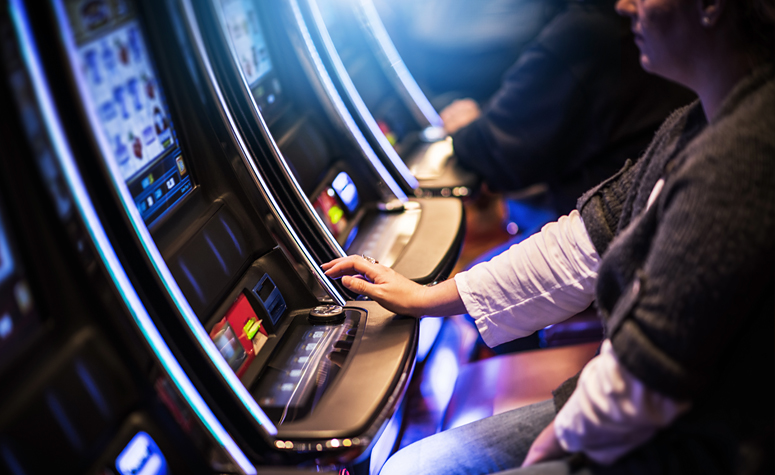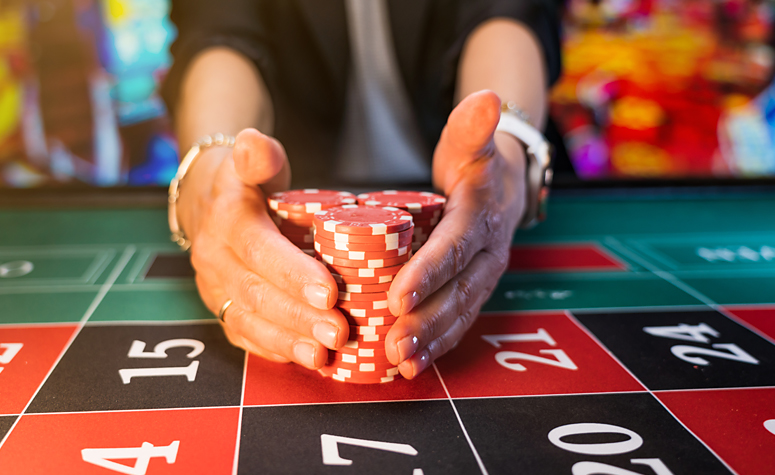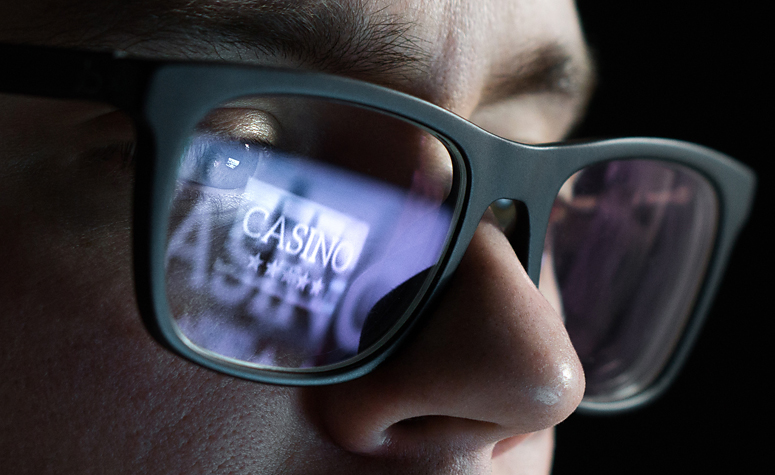Understanding and Treating Gambling Addiction
Amongst all the behavioural addictions – in fact, all addictions in general that might take hold of a person, there is little doubt that the one with the greatest potential to cause financial devastation in the shortest time is gambling. It has been known since ancient times as having the power to potentially bring even the wealthiest person to complete ruin, and the dangers of gambling are universally recognised. However, it is only relatively recently that gambling addiction has come to be systematically treated as a distinct disorder rather than simply dismissed as a regrettable vice for the weak and foolish.

Types of Problem Gambling
In principle, gambling of any kind may lead to addiction because the pattern of behaviour involving anticipating and placing a bet and subsequently expecting a result is what becomes habitual and addictive. In rare cases, gambling of a non-financial type, such as betting forfeits or taking risks with one’s health and safety (of which Russian roulette is an extreme example), can lead to addiction.
However, gambling that involves risking money is the most pervasive and, understandably, the kind of betting on which the gambling industry revolves. The most popular and damaging gambling types in the UK include sports betting (including horseracing and spread betting) and events betting (for example, gambling on election results) with both physical betting shops and online bookmakers; fruit machines and fixed odds betting terminals (FOBTs – usually within betting shops or casinos); casino and card games (also with online versions); and lotteries and scratchcards.
Although not typically regarded as such, certain types of investing, such as the stock market, may have characteristics similar to gambling, potentially leading to the development of similar behavioural patterns and issues.

Stages of a Gambling Addiction
Whilst it is important to recognise that every case of addiction is unique, experts often identify the development of a gambling addiction in several key stages.
Winning
Early on, particularly if the first few gambling experiences resulted in substantial wins, the gambler may feel the exhilarating rush of success, convinced that they have unlocked the secret to wealth and that their own skills and talent will ensure victory where so many have failed. This particularly applies in forms of gambling where a degree of skill complements pure luck, such as poker or playing the markets. The gambler may gradually become fixated on betting, neglecting other activities, and may begin betting more significant amounts.
Losing
After experiencing a few heavy losses, the exhilaration diminishes, and the gambler may then become increasingly preoccupied with recouping the money they’ve lost – which may have been meant for other purposes, thus negatively impacting the gambler’s relationships. They may take even greater risks to win back that lost money. With the initial pleasure now gone, they are now driven to gamble by compulsion. They may start spending increasing amounts of time alone, gambling as their relationships, work or school performance begin to deteriorate, along with their finances.
Desperation
After a while, betting can become the centre of a gambler’s life, with much of their life potentially damaged or completely destroyed as a result of the consequential losses their addiction has on both work and personal relationships. They cannot stop themselves from gambling, even with the very last of their money. They may become involved in criminal activities such as fraud, theft and others just to fund their habit. They could even put themselves in potential danger resulting from the loans they may have taken out to finance their gambling and pay back other debts. Being completely destitute is a looming possibility, and many gamblers who have reached this point may start having suicidal thoughts or even attempt suicide, finding themselves caught in a hopeless situation.

Signs and Symptoms of Problem Gambling
Just like with any other addiction, an addict may go to great lengths to hide their condition. Unlike many substance abuse disorders, gambling addiction may have few or even no physical signs. However, a severely damaging gambling addiction can be just as devastating to a person’s lifestyle and wealth as any drug addiction, if not more so, as their expenditure will not be hindered by their physical capacity for substances of abuse. Hence, in most serious cases, visible deterioration will be evident.
Emotional symptoms
The emotional toll of gambling addiction can be severe, especially when the losses accumulate, negatively impacting the life of the addict and their close family significantly. Mood swings are common, and the individual is highly likely to slip into depression, along with a noticeable pessimism that manifests in both their attitude and outlook. Total emotional breakdown is common, as are episodes of crying and/or aggression. Conversely, after a big win, the addict often experiences euphoria. Gambling can manifest symptoms similar to those of bipolar disorder or mania, including all the associated risks of self-harm and/or suicide.
Physical symptoms
Although gambling addiction does not physically manifest the way visible intoxication does in substance abuse disorder, there are marked physical changes in the addict. For instance, prolonged sleep deprivation and irregular eating patterns from extended gambling binges can lead to various visible physical issues such as tics, fainting, seizures, malnutrition, and others. Even in less severe cases, an overall deterioration of physical appearance may be noticeable.
Moreover, when a gambling addiction starts to have severe financial consequences, its effects become more visible through the clothes the addict wears and their overall unkempt appearance, including an increased disregard for personal hygiene. It is worth emphasising that gambling often co-occurs with other addictions, alcoholism in particular, the symptoms of which may also manifest.

Fast Access to Residential Treatment
We are currently able to offer fast access to private inpatient treatment. Please call us today and speak to one of our expert advisors.
Call in confidence: 0800 0148 970
Behavioural Signs
Like other addictions, problem gambling can cause significant changes to a person’s behaviour and, ultimately, their character. They start to lie and become secretive as the addiction develops, with the gambler trying to hide their habits and, especially, losses.
There will be changes in sleeping and eating patterns and a loss of interest in activities and people they used to love and spend time with whilst forming new peer groups or withdrawing into isolation.
Depending on the specific type of gambling they engage in, they may become fixated on data and probabilities. Furthermore, the gambling addict’s work suffers due to reasons like tardiness, absenteeism, declining concentration and cognitive faculties, and maybe even the misuse of workplace resources for gambling activities.
They are likely to always ask to borrow money, often followed by occasional periods of abundant wealth, where they spend extravagantly. Moreover, they tend to always be lost in thought and uncommunicative, possibly deeply depressed, displaying a gloomy demeanour, and potentially feeling resentful towards the rest of the world because of what they perceive as their bad luck.
Financial Signs
Gambling is potentially the most financially burdensome form of addiction. There is no ceiling on losses as it solely depends on how much a gambling addict can access. Addicts often find themselves with very little or no cash and frequently have to borrow money for basic necessities. They may quickly deplete valuable assets, including those technically shared with partners. Many often have a history of default and bankruptcy and are unable to obtain credit through legitimate means. Some problem gamblers resort to committing financial crimes to sustain their habits and recoup losses.

Treatment Options for a Gambling Addiction
At our network of UK residential facilities, we can offer gambling addiction treatment (either by itself or together with other addictions), while the NHS and some charities also provide treatment services.
Working with our addiction specialists we will create a bespoke treatment plan based around therapies which include cognitive behavioural therapy (CBT), dialectical behaviour therapy (DBT), family therapy, medication (where necessary to treat underlying conditions and complications arising from addiction), support groups and more. Be assured that it is possible for even the most hopeless and hardcore gambler to make a 180 degree change and turn their lives around.
Cognitive behavioural therapy (CBT)
CBT is a well-known therapy model because of its efficacy. Also known as “talk therapy,” CBT helps the individual learn about their thinking patterns and rewire their brain through a more proactive approach. It equips a person with cognitive skills to manage their symptoms and divert from thinking patterns that only exacerbate their mental disorder.
Dialectical behaviour therapy (DBT)
As mentioned, gambling in excess is a form of compulsive behaviour. To that end, DBT (Dialectical Behaviour Therapy) targets the intricate link between the thoughts and actions of an individual during active gambling addiction.
By integrating emotional regulation techniques and mindfulness, this form of therapy is meant to equip patients with the tools necessary for navigating and resisting the compulsion to indulge in excessive gambling.
Family therapy
Like many mental health disorders, gambling addiction affects not only the person struggling with it but also the people around them. Through family therapy, their loved ones can learn, understand, and support them in better ways that do not undermine their treatment. The goal of family therapy is to shed light on the realities of problem gambling to your loved ones and also develop new ways to support you in your home environment. The active participation and support of loved ones can drastically improve your quality of life and create a more supportive environment.
Physical health
Aside from medication, counselling, and therapy that targets the mental health aspect of the treatment, focusing on physical health is also key to having a more holistic treatment. Research suggests that people with a gambling addiction often have poorer physical health compared to other people. Managing physical health means bespoke fitness and nutritional plans and fostering healthy habits to reinforce the practices.

Sometimes the smallest step in the right direction
ends up being the biggest step of your life
Tiptoe if you must, but take the step
What Causes a Gambling Addiction?
The role of brain chemistry in the development of gambling and behavioural addictions in general is becoming increasingly, though still not completely understood. However, our understanding of why some people undergo such processes while others don’t is still comparatively limited.
It is widely accepted that both genetic and environmental factors contribute to the development of gambling addiction. Due to hereditary predisposition, individuals with a family history of addiction are likely to become addicts themselves. However, this does not apply in every case. Whilst we may be aware of the different factors in a person’s upbringing and later life which are known to increase the risk of addiction, these may affect individuals differently, leading some to addiction and having no impact on others.
However, it is evident that the more exposure one has to gambling, especially at a young age, the higher the likelihood of at least beginning to gamble. It is important to recognise that without starting to gamble in the first place, a gambling addiction will not take hold. However, it is crucial to remember that gambling, once or even several times, does not automatically lead to addiction.
FREE Gambling Addiction Assessment
If your or a loved one are struggling with a gambling problem, we understand the challenges you’re facing and we’re here to offer compassionate help.
Our highly trained advisers are available to speak to you right away, simply call 0808 252 3379 today.
We can discuss your concerns in complete confidence, explore the options for treatment, and help you to understand what will work best for you.
We’ll also help you to book your free gambling addiction assessment there and then, with appointments usually available within only a few days.
We understand that taking the first step can be the most difficult, but we’re here to support – with no pressure or judgement.
Professional and compassionate help is just a phone call or click away.




